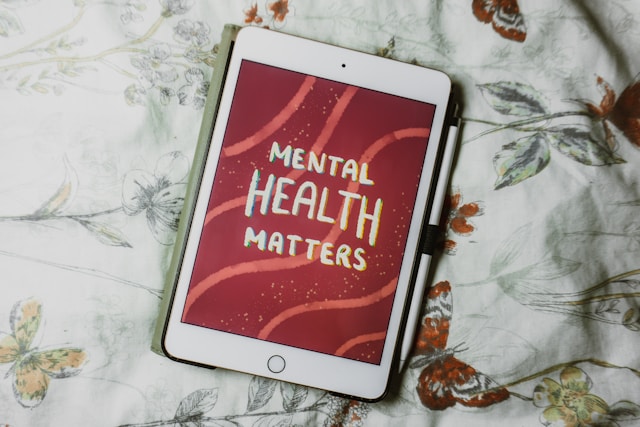Mental health is becoming a priority for many as the world gets busier and more demanding. People are searching for simple ways to improve their well-being, and spending time in nature is an effective solution. Walking in a park offers numerous physical and mental health benefits, including stress relief and improved mood. For those in addiction recovery, connecting with nature can provide a healthy outlet for managing emotions and staying present. Parks offer a unique opportunity to unplug from daily distractions and recharge. Activities like walking in a natural setting can reduce feelings of overwhelm and promote relaxation. By strengthening your relationship with nature, you might find a new tool to help your mental health. This seemingly simple activity could profoundly benefit your mind and body, making it worth exploring.
THE SCIENCE BEHIND NATURE AND MENTAL HEALTH
Nature has a remarkable impact on the human mind, supported by research from health and psychology experts. Studies show that being outdoors reduces stress levels, lowers blood pressure, and improves overall mood. Green spaces stimulate areas of the brain associated with relaxation, reducing the intensity of negative emotions. Unlike urban environments, which are noisy and overstimulating, parks create a calm and peaceful atmosphere. Time spent in nature has been linked to lower rates of anxiety and depression.
Additionally, exposure to natural sunlight boosts vitamin D levels, vital for emotional well-being. The sights, sounds, and smells of a park engage the senses and promote mindfulness. This engagement helps interrupt stressful thought patterns and creates space for mental clarity.

Nature has a soothing impact on our mental health, and it lowers anxiety levels.
HOW WALKING IN A PARK REDUCES STRESS
Walking is one of the simplest ways to support mental and physical health, especially when done in a park. Exercise alone helps release endorphins, which improve mood and reduce stress. Adding a natural environment enhances these effects, creating a powerful stress-relief combination. Parks provide a quiet, scenic space to unwind and reset after a busy day. Walking through greenery also lowers cortisol, the hormone associated with stress. It’s an opportunity to replace unhealthy coping mechanisms with positive habits. Even a short 20-minute walk has been shown to improve mental focus and relaxation. The rhythm of walking and the sensory experiences of a park can calm the mind, leaving you feeling recharged. This practice is a simple way to incorporate peace into your daily routine.

A daily walk in the park can really help your mental health and reduce stress levels.
HELP YOUR MENTAL HEALTH WITH A DAILY WALK
Making park walks part of your routine can provide lasting mental health benefits. Regular walking has been shown to reduce symptoms of anxiety and depression while boosting overall mood. The rhythmic motion of walking helps settle racing thoughts, creating a sense of mental balance. Parks offer a unique setting for walking because they are quiet, visually pleasing, and free of distractions. Walking in a park also encourages consistent exercise, which benefits both the body and mind. A walk can act as a reset button for those feeling emotionally overwhelmed, offering clarity and calmness. Over time, these small moments of peace add up to create a more balanced outlook on life. Whether you walk daily or just a few times a week, the habit can transform how you handle stress. This accessible and affordable activity can significantly help your mental health.
THE CONNECTION BETWEEN NATURE AND MINDFULNESS
Mindfulness, the practice of staying present in the moment, is a powerful tool for improving mental health. Nature provides an ideal environment for mindfulness by engaging the senses in calming and grounding ways. In a park, the rustling of leaves, the vibrant colors of plants, and the fresh scent of the outdoors draw your attention to the present. This sensory immersion helps quiet racing thoughts and reduces feelings of anxiety or overwhelm. For individuals managing mental health challenges or navigating addiction recovery, mindfulness can be transformative. Spending time in natural settings offers a peaceful space to reflect and rebuild emotional balance. In fact, research shows that nature can support your recovery by reducing stress and promoting emotional stability. Walking in a park allows you to combine movement with mindfulness, creating a restorative practice that nurtures both mental and physical well-being.
SOCIAL AND EMOTIONAL BENEFITS OF PARK VISITS
Parks are not only places for solitude; they also create opportunities for social interaction and emotional connection. Many parks host events, walking groups, or community activities that bring people together. These gatherings can reduce feelings of loneliness and create a sense of belonging. Socializing outdoors often feels less intimidating than in formal settings, making it easier to connect with others. Engaging in shared activities like hiking or bird-watching enhances bonds with loved ones. Beyond social benefits, parks boost emotional well-being by creating joyful experiences. Watching children play or observing wildlife can be uplifting and soothing. By combining social connection with nature, parks support mental and emotional health on multiple levels.
MAKING WALKS IN THE PARK A CONSISTENT PRACTISE
Turning park visits into a regular practice can be simple and rewarding. Start by setting small goals, such as visiting a park twice a week. Gradually increase the frequency as you build the habit. Pairing walks with other enjoyable activities, like listening to music or podcasts, can make the experience even more appealing. Journaling after your walk is another way to reflect on its benefits and track your progress. If time or weather limits your ability to visit parks, consider alternatives like virtual nature tours or incorporating indoor plants into your home. Even looking at images of nature has been shown to improve mood. Scheduling your walks at the same time each week can make the habit easier to maintain. Over time, these consistent efforts will create a meaningful impact on your mental health, offering moments of peace and clarity.

Journaling after your walk is a great way to reflect on its benefits and track your progress.
Walking in a park is a simple, accessible way to help your mental health and bring balance to your life. This activity combines the calming effects of nature with the proven benefits of physical movement. Whether you’re managing stress, navigating addiction recovery, or seeking greater mindfulness, parks provide a valuable resource. They offer space for quiet reflection, social connection, and emotional renewal. By incorporating regular walks into your routine, you can experience improvements in mood, focus, and resilience. Start with a small goal, like a 20-minute walk, and notice the difference it makes. Nature is one of the most effective tools for mental well-being, and parks make it easy to connect with it.